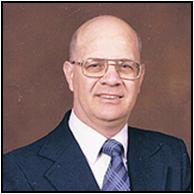 |
|
| Volume 18 Number 5 May 2016 | Page 6 |

Mark McWhorter
 There are professed Christian leaders who say that Jesus failed to establish His kingdom. They say that Christ came to establish an earthly kingdom. Since Jesus failed, He had to establish the church. However, Paul’s letters show this to be a false idea.
There are professed Christian leaders who say that Jesus failed to establish His kingdom. They say that Christ came to establish an earthly kingdom. Since Jesus failed, He had to establish the church. However, Paul’s letters show this to be a false idea.
Colossians 1:20 tells us that peace was made between God and man through the blood of Jesus. This was done to reconcile all things. It makes no sense that Jesus failed in His mission but still died to reconcile all things. If He has reconciled all things, why would something else be needed later to reconcile them?
In verse eighteen, Paul said that Jesus is the Head of the church. He wrote that Jesus is the firstborn. This is a reference to him as the Creator and the most important One Who rose from the dead. Having done both, He is preeminent in all. This means that He is above all things. Yet, that would make no sense if He had actually failed in His mission on earth. He would not have preeminence on earth if He failed. Satan would have that on earth, but Jesus defeated Satan in His resurrection.
Verse thirteen says saints are in the kingdom. Since Jesus is Head of His body – the church, the kingdom must be the church. So, from this we know that whatever allows one to be in the church allows one to be in the kingdom. Verse twenty tells us it is through the blood of the cross that mankind is reconciled. Verse nineteen tells us that this all pleased the Father. How could this have pleased the Father if Jesus failed in His mission on earth? The answer is that Jesus did not fail. Instead, He shed His blood on the cross just like the Father had planned for Him to do.
Study your Bible. Learn all you can about Christ and His church. If any of this is hard to understand, ask an adult to help you.![]()
True Truth-Seekers
Donald R. Fox
 Over many years now, I have used the wording “true truth-seekers” in my public and private prayers. I ascertain that some folks are not honestly dedicated to the whole truth in some areas. Truth many times is in the “eye of the beholder” and what he has been told. Our culture plays a great role in how we respond to truth. For example, most people embrace the religion and political affiliation of their parents.
Over many years now, I have used the wording “true truth-seekers” in my public and private prayers. I ascertain that some folks are not honestly dedicated to the whole truth in some areas. Truth many times is in the “eye of the beholder” and what he has been told. Our culture plays a great role in how we respond to truth. For example, most people embrace the religion and political affiliation of their parents.
We swear to tell the whole truth and nothing but the truth in our courts of law. Yes, we recognize the value of truth. From a computer search, I found the following defining explanations concerning an all-important understanding of truth. Truth is, “The quality or state of being true. That which is true or in accordance with fact or reality. A fact or belief is accepted as true.”
Throughout the ages and in all worldwide cultures, in spheres like law, religion and individual ethical or moral responsibilities, people have struggled with what is truth. Cultures that adhere to barbaric and cruel, backward laws are a terror to mankind. As I researched some material several years ago on my computer, by accident, I came across horrid videos. I viewed some folk being thrown into a ditch and burned alive because they were thought to be witches. This tragic act took place in Africa. Additional acts of repulsive crimes were also available for viewing. This type of deranged law and punishment was common in the dark ages and is still present in our own times. Truth and brotherly charity are rejected many times because of where we live and what we were taught. It could be said that evil, if mandated and accepted by the masses, becomes the truth to people living under this type of depravity.
In the conversation between Jesus and Pilate, we see the rejection of Jesus’ not-guilty status. Pilate knew the whole truth of the matter, and because of political convenience he allowed evilness to take charge.
Pilate therefore said unto him, Art thou a king then? Jesus answered, Thou sayest that I am a king. To this end was I born, and for this cause came I into the world, that I should bear witness unto the truth. Every one that is of the truth heareth my voice. Pilate saith unto him, What is truth? And when he had said this, he went out again unto the Jews, and saith unto them, I find in him no fault at all. But ye have a custom, that I should release unto you one at the passover: will ye therefore that I release unto you the King of the Jews? Then cried they all again, saying, Not this man, but Barabbas. Now Barabbas was a robber. (John 18:37-40 KJV)
Worldwide truth is available!
“From man’s creation ethics and morals have been an important part of his personal and social life. One of the strongest evidences for God from within man is his ought factor, which causes man to ask thoughtful questions about what he should or should not do” (Waldron). The ethical standards in the Word of God – the Bible – is beyond any worldwide, manmade, creed-bound religionist dogmas. Truly, the truth is revealed. “Sanctify them through thy truth: thy word is truth” (John 17:17).
Note the “Golden Rule” and a challenge to find a better, a more loving, civilized standard of conduct. “Therefore all things whatsoever ye would that men should do to you, do ye even so to them: for this is the law and the prophets” (Matthew 7:12). “O Lord I know that the way of man is not in himself; it is not in man that walketh to direct his steps” (Jeremiah 10:23).![]()
Works Cited
Waldron, Jim E., Ed. “Introduction.” Is there a Universal Code of Ethics? New Delhi: World Literature Fund, 1982.